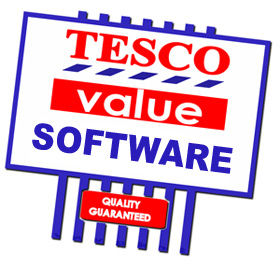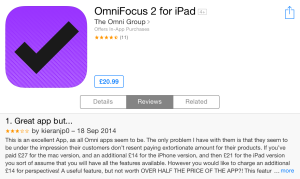
For as long as I’ve been paying the rent by selling my skills in the web industry I’ve thought that I had a product in me.
Back in the late 90’s I was a wannabe .com ‘founder’ working on terrible ideas initially with no clue about business or technology. As I came to grips with the latter and got a proper job I was still working on things in my evenings and weekends; I even went along to some of the original First Tuesday events in London to try and get seed funding. In hindsight it was a mad time.
The inevitable crash came almost as a relief. It certainly allowed me to drop the side projects and to focus on getting good at my trade. As a bonus I discovered this thing called life so I had some fun, got married, became a father, started a business; all that good stuff.
More recently I’ve been working again on side projects with a few getting quite far before once again being ditched, this time because I realised that the business model sucked. The most recent – and hopefully final – example of this is Notebud [Wayback machine, Website now dead] a simple mobile capture tool for OneNote users; a tool which I’d pay money for right now if it existed, hence starting to build it.
It’s nearly finished, a few more weekends on it and I could probably ship something but quite late in the day I realised that I didn’t want to be working on a B2C product so I downed tools. Why did I waste* all that effort?
Well, if you spend any time around the bootstrapping community, sucking up information in podcasts, blogposts and from hearing people speak at conferences you’ll be familiar with the three commandments relating to the market you’re selling to (usually referred to as audience)
- Like hanging out with your audience (in my case: geeks in business) as you’ll be spending a lot of time in their company
- Make sure your audience is willing to spend money (e.g. frugal down-shifters might be less willing to buy your next eBook)
- Don’t second guess what they want. Instead talk to your audience, listen to their pains then choose the biggest one and try to remove it for them
It’s point 2 that made me ditch Notebud.
2024 edit: I also lost trust the the OneNote API and therfore the appetite to run a business based off a 3rd party API.
Ignoring the glaring fact that the frustrated mobile OneNote users market is not likely to be large, the big realisation was that they are unlikely to want to pay much for any solutions. Unfortunately for us budding bootstrappers, retail consumers have been conditioned that anything more than a couple of quid/bucks is expensive.

Case in point, the new iPad app for OmniFocus was just released. I already use OmniFocus myself and was happy to buy the desktop app – even though at least 2 people told me it was ‘expensive’ and suggested cheaper alternatives – and also to spend a further tenner on the iPhone app.
However, I balked at the £21 price tag for the iPad app and didn’t buy it; too expensive (though to be fair I don’t actually use the iPad in my productivity work flow).
If me, a developer who has a pretty good idea how much work went into that app, thinks it is expensive then what are the people on the street thinking? Well the first review I’ve attached as a screenshot neatly illustrates my point; it’s ‘extortionate’ apparently.
So, if you are thinking about bootstrapping and you’ve not yet defined your ‘audience’ then I’d strongly recommend considering people in business rather than price-conscious consumers. Sell to people where there is a cost vs. benefit analysis for most purchases. People with corporate credit cards who if you’re removing a definite pain for them will happily get it out and pay you a reasonable fee for your product or service.
Of course the potential volumes for B2C transactions are very attractive but at such a low unit cost you need to sell a lot of 99p apps to start paying that rent, especially when you factor in the inevitable support overhead that will also come with your product.
B2C can work, but I’ll be focussing my efforts elsewhere.
* Actually, it was a useful way to learning how to build a mobile app, so I’ve gained some new skills, but I’ve still lost time and money
Leave a Reply to bealers Cancel reply